
An invitation to participate in a group research project
We are expanding our body of knowledge through various activities, including videoing personal testimonies, rediscovering and documenting the locations of historical buildings and communities and tracing family connections. We plan to hold more conferences in the Levant, collaborating with local academic and other institutions that share our interest in discovering the region’s past. We welcome your proposals for research papers, informal contributions, events, interviews and any other suggestions that add to our network of information and contacts.
We sponsor researchers either individually or working on teams to gather, analyse and present the information to ensure the survival of artifacts, knowledge and elements of the culture for future generations.
Levantine Heritage is open to new ideas of research, presentation of findings and possible publications in the future. We would welcome new contacts and leads to widen our appeal and research remit. We also bring researchers together, either in meetings, or in the virtual world of e-mails and social media, helping cross-pollination of ideas and inspiration for future studies and collaborations.
We publicise a newsletter once every 3 months to highlight past and ongoing research and the findings, and allow for discussion to take place on the viability and efficiency of future projects. We thank all who have contributed in their own way in the past, allowing us to develop thus far.
The Academic Advisory Committee
Francesco Pongiluppi
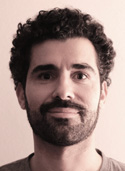
Coordinator:
Born on the island of Sardinia, Francesco Pongiluppi has in the past ten years been studying and working between Italy and Turkey. As a historian and international relations analyst, he specialized on the Italian-Ottoman and Italian-Turkish relationship between the 19th and 21st centuries. He received his PhD in History at La Sapienza University of Rome in 2017, with a dissertation on the Italian presence in the late Ottoman Turkey. He authored several publications on the role played by Italians in the socio-cultural, economical and political life in the Eastern Mediterranean region. In 2015 he published in Istanbul the book La Rassegna Italiana-Organo degli Interessi Italiani in Oriente. He is now analysing the relationship between Italy and Turkey in the interwar period through archival research on the Italian Fascist activities within Turkish society. Similarly, he is also starting another research path on the Ottoman presence in Eritrea during the Italian colonial period. As an international relations analyst, he writes about the cultural, political and economical environment in the Levant. In 2017 he co-founded Atelier Ideas & Research, a cultural association that promotes scientific advisory activities and research cooperation between young scholars in humanities across Italy and France. In Turin, he is the coordinator for various educational projects addressed to asylum-seekers and immigrants. A link to his interview with the LHF on his recent activities can be found here.
Emanuela Pergolizzi
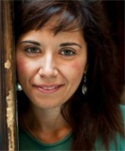
Emanuela Pergolizzi is an independent researcher who has lived between Turkey, Italy, France and London. She completed her studies in Italy at the universities of Bologna and Turin and holds a MA in Near and Middle Eastern Studies obtained at SOAS. She began her researches on the Italian Levantine community in the Mediterranean in 2014, through a private grant received from the Kaslowski family (Istanbul). At the moment, she collaborates with the LHF from Italy (Bologna).
Ioanna Koukounis
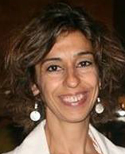
Ioanna N. Koukouni is an archaeologist with expertise in the medieval eastern Mediterranean, graduate of the University of Birmingham, Centre for Byzantine, Ottoman and Modern Greek Studies (2012), with scholarships from the Kougioulis Foundation and the School of Historical Studies. As EU fellow (2013-2016) she followed the strand of Digital Humanities and conducted postdoctoral research in audience development for cultural heritage via digital learning. In 2016 she co-founded the Centre for Historical Studies of the Genoese Overseas (CeSSGO) with Professors Sandra Origone and Gabriella Airaldi of the University of Genoa, aiming to bring together new research by established academics and early career scholars working on the Genoese commercial communities overseas. In her capacity as a cultural professional, she supports public engagement to cultural heritage by launching learning activities and study tours on Chios island, her main research area.
Gül Tokay
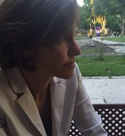
Born in Istanbul and studied in Istanbul, Salzburg but mostly in London. Gül Tokay holds a PhD in History from SOAS, where she also obtained her MA degree. Gül’s earlier research has been on south-eastern Europe, which she has widely published. Her recent work, however, focuses more on Ottoman diplomacy including the foreign missions in the Ottoman Empire during the late 19th and early 20th centuries. Gül Tokay has worked at the department of the Political Science and International Relations in the University of Marmara for many years, lecturing in various fields of political history. Currently, she divides her time between London and Istanbul and works mainly in research and publishing. For part of her recent portfolio please refer, www.academia.edu.
Behice Tezçakar Özdemir
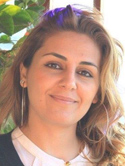
Behice Tezçakar Özdemir who is an author, history researcher and journalist born and raised in Bosphorus (Istanbul). She received her B.A in History as a valedictorian of Istanbul Bilgi Univesity. She got the Master’s Degree from History Department of Boğaziçi University. She specialized on the Turkish- German industrial relations and the roles of German, English enterprises and companies on the industrial developments of Ottoman territories including today’s Turkey, Middle East and Balkans. Her research book ‘Discovery of Oil in the Minds and Lands of the Ottoman Empire’ is published internationally (2009). Özdemir is co-writer for ‘Daheim in Konstantinopel-Deutch Spuren am Bosporus ab 1850- Memleketimiz Dersaadet 1850’den itibaren Boğaziçi’nde Alman izleri’ published by Pagma Verlag in Germany (2013). Her last research book ‘History of Siemens from Empire to Republic - In the Light of Documents from State Archives’ was published for Siemens 160th anniversary (2016). In that work she examined different territories of Ottoman Empire like Constantinople, Baghdad, Basra, Fao, Sudan, Mosul, Aleppo, Tripoli, Rhodes, Thessalonica on behalf of the industrial activities in different sectors like communications, mobility, energy and industry, defense, cities and building technologies, human resources and healthcare. Behice is the founder managing editor of Atlas Tarih (Atlas History Magazine) from Doganburda Publishing, a media company in Istanbul. She authored 80 articles for different magazines and newspapers such as Hürriyet, Milliyet, Radikal, and Yapı Kredi Cogito, Atlas Tarih. She has written three experimental history books in new format created by her on Mehmed the Conqueror, Suleyman the Magnificient and Abdülhamid II. She got “Yaşar Nabi Nayır Poetry Award” and her related file was published in 2010. Özdemir was the history advisor for the historical movie on the Battle of Gallipoli called “Çanakkale Yolun Sonu” (2012). She was a participant in the LHF Conference (2017) link can be found here. Behice is a member of Darüşşafaka Yüksek İstişare Kurulu (Darüşşafaka Advisory Board) which is a highly respected historical lycee for orphans in Istanbul. She is currently working on her new book. For more information please refer, www.behiceozdemir.com.
Achilleas Chatziconstantinou
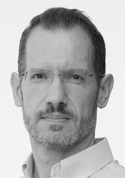
Born in Athens Greece to a family with roots on the island of Andros and Smyrna (modern day Izmir, Turkey). In 1994 he graduated with a Bachelor’s degree in Geology from National and Kapodistrian University of Athens (NKUA) and in 1995 he earned an MSc in Geographical and Geodetic Information Systems from the University College London (UCL). From 1997 to 1999 he was in charge of the cartographic digitization project of the Athens-based non-profit Cultural Society “Panorama”. Since 1999 he works as Planning and Network Systems Section Manager at COSMOTE Telecommunications SA in Greece.
As a geologist, he has been cooperating since 1994 with the Halassarna archaeological project, on Kos island, and was a member of the Corpus of Ancient Greek Quarries team, both of which have led to several publications and monographies.
He has been actively involved with the Levantine Heritage Forum since its early days, promoting its work and exchanging data with scholars and history enthusiasts. He presented the paper ‘The Image of the Levantines as Portrayed in the late 19th Century Travel Literature’ at the First Levantine Symposium in Izmir, November 2010. The last 25 years he has been travelling many times in Turkey as well as in countries of the Middle East. His research activities include various aspects of the history and topography of Smyrna/Izmir, mainly focusing on the second half of the 19th century and up to 1922, such as the compilation of thematic timelines, and a complete local authorities chart (valis, mayors, consuls, religious leaders etc.) of that period.
His latest project involves the Quay of Smyrna, an extensive research and illustration of the city’s legendary seafront which he has been studying along with the co-researcher George Poulimenos since 2012 and is expected to be published in Greek in autumn 2018. Currently, he holds the position of the Chairman of the LHF Athens 2018 Conference Programme.
Researchers for the LHF past and present
Frank Castiglione
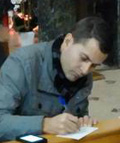
Frank Castiglione is a Ph.D. Candidate in the Department of Near Eastern Studies at the University of Michigan, Ann Arbor. He has completed two Master of Arts Degrees, the first at Leiden University in Arabic, Persian, and Turkish Languages and Cultures, and the second at McMaster University in Globalization and the Human Condition. His research focuses on the social and political history of the Ottoman Empire in the nineteenth century. He is currently completing his dissertation, which explores the activities of the Pisani family of dragomans employed by the British Embassy in Istanbul and their roles as intermediaries between the British and the Ottomans. The study engages with debates about concepts of imperial space, imperial subjecthood, and cross-cultural brokerage between empires in transregional perspective. Some of his dissertation research has been published in an article “‘Levantine’ Dragomans in Nineteenth Century Istanbul: The Pisanis, the British, and Issues of Subjecthood” Journal of Ottoman Studies XLIV (2014), 169-195. An interview outlining his research and following up on his participation at the Levantines: Commerce and Diplomacy Conference in Istanbul (2014) can be found here.
Edward-Charlton Jones

Edward Charlton-Jones read History with Russian at Oxford. He spent a year working with the UNHCR on refugee and IDP-related issues in Tbilisi, studying in Bishkek and travelling through Central Asia before completing a master’s degree at Harvard, in which he focused on Russian and Turkish modern history, politics and languages. He is currently qualifying to work as a lawyer with Allen & Overy, London and intends to practice law and pursue his research and writing interests in Istanbul.
He is particularly interested in the late 19th and early 20th century history of the Russian Empire and the Middle East, and particularly the way shifting political borders, volatile nationalist movements and international legal systems defined and redefined geopolitical marchlands in Eastern Europe, the Balkans, the Levant and the Caucasus. His thesis at Oxford was on the early history of the UNHCR’s work with refugees in postwar Europe, and his thesis at Harvard was on the White Russian refugees who fled the Bolshevik regime and Russian Civil War from 1917 onwards and made their way to Constantinople. For a brief summary of this latter topic, please follow this link to a talk delivered to the Levantine Heritage Foundation in July 2015.
Edward is currently based in London and would welcome any enquiries regarding his work. He would also love to hear from any people who may have personal connections with the White Russian diaspora and/or Ottoman-era Turkey, or source material (photographs, old letters etc) relating to his academic interests. Please feel free to contact him directly.
Görkem Daşkan
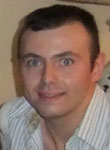
Görkem Daşkan was born in Izmir. He studied Business Administration and European Studies. He has worked several jobs including waiter, sales representative and shop manager. His Turkish translation of Alex Dingwall-Main’s “The Angel Tree” came out in 2007. He has been writing book reviews, interviews and research articles for Levantine Heritage since November 2010. He made translations for two documentary films: “God Is Not Dead/Punk Islam” (2011) and “Hello Anatolia” (2012). He is interested in film, music, history and politics. Daşkan was a participant in the ‘International Symposium on Alsancak: Past, Present and Future of a District of Friendship between Communities and Religions’ - Izmir Meetings of Archaeology and Cultural History no: 1, November 28, 2012 - programme:
Latest example of his research article:
Ümit Eser
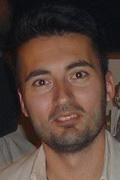
After completing high school education in Izmir, he studied History and International Relations/ European Studies at the Middle East Technical University in Ankara. In 2009, he earned an M.A. degree from the History Department at Sabancı University where he worked as a teaching assistant at the same time. Currently, Mr. Eser is a candidate for a doctorate at the School of Oriental and African Studies (SOAS), University of London. He is completing his dissertation entitled: ‘All Loud on the Western Front: Ethnic Violence, Occupation, and the Ottoman Bureaucrats in Aydın Province (Vilâyet), 1919-1922’. His research interests include identities in the Balkan Peninsula and Turkey; nation-building and minorities; and history of the Eastern Orthodox Churches in the Late Ottoman and Early Republican periods.
He contributed to the ‘Former Smyrna Churches Listing’ in the Levantine Heritage Website through adding some documents from the Ottoman Archives of the Prime Ministry in Istanbul in 2010. Apart from this little contribution, he wrote an article in Turkish for Balıkesir Üniversitesi Sosyal Bilimler Enstitüsü Dergisi: “Millet Sisteminin Tarihi Arka Planı: Gayrimüslim Cemaatler için Özerk bir Alan” (Background of the Millet System: An Autonomous Realm for non-Muslim Communities) in the same year. In 2015, “A Versatile Text for the Propagation of Nationalism: Under the Yoke (Pod Igoto) by Ivan Vazov” was published in Balkan Nationalism(s) and the Ottoman Empire, a collective volume edited by Dimitris Stamatopoulos. He also prepared a manuscript, “Catholic Orders among the Local Christians: The Mission Bulgare and the Catholic Schools in Adrianople Province, 1860-1885”, for the post-conference publication project of the Istanbul Conference.
Emel Kayın
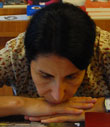
Architect and author. She has spent half of her life in Gaziantep and half in Izmir. Having studied architecture and restoration (architectural conservation), she is the writer of a number of stories, poetry, essays, research papers and documentary scripts. Among her publications are “İzmir Oteller Tarihi” (A History of Izmir Hotels), a research book that delves into the emergence of hotels in the city as a concept of modernity, “Mekân Hikayeleri” (Site Stories, published 2008, reprinted April 2013), a story book of experimental and imaginary short stories in which the time, cities, houses and human beings are interpreted as sites themselves, and “Kentin Kıyısında ve İçinde Olmak: İnciraltı” (Existing in and on the Coast of the City: İnciraltı), a memoir-essay book. Kayın is also the project designer, editor and one of the participating authors of the books “Kentinsan” (Citysapiens), a collection of prose poetry of 30 author-poets on urban problems and “İzmir’in Artalanındaki Kentlerde Mimarlık” (Architecture in the Hinterland Cities of Izmir), a collection of articles by 8 researchers that look into the disregard of architecture in the peripheral cities in question. Her literary and research work featured also in the following books: “Kadın Öykülerinde İzmir” (Izmir in Women’s Stories), “Savur Saçlarını Ege” (Throw Your Hair, Aegean) (story books); “Güneşi Öpmek” (Kissing the Sun) (poetry); “Calvino’yu Niçin Okumalı” (Why We Should Read Calvino), “Hızın ve Devrimin Sanatı Fütürizm” (Futurism: the Art of Speed and Revolution), “Tanıklıklarla 12 Eylül” (September 12 Testimonies), “12 Eylül Sabahı” (The Morning of September 12), “Kadına Dair” (About Women) (essay-memoir books); “Mimarlığın Çevresinde Mekânın İçinde Kuram, Eylem ve Söylem” (Theory, Practice and Discourse within Space and in the Scope of Architecture), “Değişen İzmir’i Anlamak” (Understanding the Changing Izmir), “Türkiye’de Mimarlık 2009” (Architecture in Turkey 2009), “İzmir Mimarlık Rehberi” (Izmir Architecture Guide) (research books). Kayın has written documentary scripts for the TRT (Turkish Radio and Television Corporation) for ten years. Having contributed to various group photography exhibitions, she is the curator of and copywriter in 6 different architecture magazines each problematizing the circular adventure of historic-contemporary architecture. Her architectural designs for prospective constructions in historical areas, and restorations as well, came to be implemented. Kayın keeps searching for a modern-plain reality and new ways of expression in the fields of architecture, literature and photography, all of which she has deep connections with. Being also an academic, she takes care to work for the NGOs specialised in the subjects of urbanity, architecture, conservation, literature, photography and women’s rights. She strives to focus, in her academic/artistic/social work, mainly on the idea of the realisation of anything alternative/sustainable/fair in our lives and the making of an innovative-transformative yet sincere way of living. Most recently Kayın was a participant in the ‘Yaşamak, inşa etmek, korumak: Şehirlerin sorunları’ [To live, to construct, to preserve: City’s problems] - Symposium organised by the French Cultural Centre - 12-13-14 November 2012, Izmir Chamber of Commerce Hall, Izmir - programme:
Latest example of her research article:
Vjeran Kursar
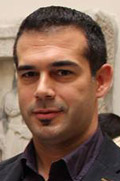
Vjeran Kursar was born in 1975 in Zagreb, Croatia. He graduated with the double major in History and Turkish Studies from the Faculty of Humanities and Social Sciences, University of Zagreb (2003). He got his MA in Ottoman History from Bilkent University, Ankara (2007). In 2011 he graduated with the Ph.D. thesis entitled “Non-Muslims and the functioning of a premodern multi-confessional society in Ottoman Bosnia (1463 – ca. 1750)” from the Department of History, Faculty of Humanities and Social Sciences, University of Zagreb. He is working as the assistant professor at the Department of Turkish, Hungarian and Jewish Studies and the Department of History, Faculty of Humanities and Social Sciences, University of Zagreb. He teaches classes on Ottoman history. His main fields of interest are Early Modern History of the Ottoman Empire and the Balkans, Social, Legal and Cultural History, Islamic Law, and Ethnic and Confessional Relations in the Balkans. He is a member of Croatian National Committee for Historical Sciences (HNOPZ), International Committee for Pre-Ottoman and Ottoman Studies (CIÉPO), and a member of the Executive Committee of International Association of Social and Economic History of the Ottoman Empire (IAOSEH). He was script writer and scientific advisor in several documentary films produced by Croatian Television, including “Croats on the Bosphorus” (script writer with Vesna Miović), and “Zelić – Printers to the Empire” (script writer) - further info.
Recent articles:
interview:
Graham Lee
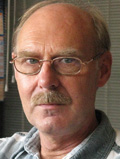
Graham Lee was born and raised in the Liverpool scene of the 1950-1960s and subsequently worked for advertising and film companies in London before settling in the town of Çanakkale in the 1980s. He has published 3 books: A Handy Guide to Çanakkale, Gallipoli and the Dardanelles (1999), Old Çanakkale Postcards & Photographers / Dönem Dönem Eski Çanakkale Kartpostalları ve Fotoğrafçıları (2003), and The Story of Turkish Surnames (2006). He has also written articles in English and Turkish under different names on various aspects of Çanakkale from Ottoman to modern times in between lecturing at Çanakkale Onsekiz Mart University and guiding tourists to Troy and Gallipoli. Ongoing projects include photographs, engravings, consuls, and European families of the Dardanelles region as well as Levantine communities of Edirne. Other interests relate to linguistics, etymology, onomastics and film-making. He is currently preparing a visual history of the clock tower in Çanakkale and an outline of the Calvert family.
Latest example of his research: The listing of the Consuls of Çanakkale (v.4)
The listing of the Consuls of Gallipoli (v.4)
Rinaldo Marmara
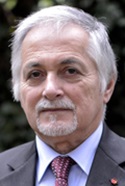
Born in Istanbul, to an old Genoese family established in the East, Rinaldo Marmara did his apprenticeship in this crossroads of civilizations where tolerance and multilingualism are innate. Marmara is a graduate of economics and he started in the business world as an exporter and manufacturer. A few years after his marriage, he moved to France and dedicated himself to researching the Latinity in the East. This Levantine focused his interest on his birthplace and the history of its inhabitants. In the University of Paul Valéry of Montpellier (France), the subject of his DEA (Master) concerned the Turkish-Ottoman loans in the general Greek community of the Levant; and his doctoral thesis was on the History and Civilization of the birth, rise and fall of the Latin community of Constantinople.
Author of a hundred articles in professional journals, the number of his published books is now over thirty. Currently he is researching the history of Smyrna. He is presently a professor at the Istanbul Aydın University, where he teaches the history of diplomatic relations between the Holy See and Turkey, with his point of reference being the Vatican Secret Archives. He is decorated by the Holy See and was made a Knight of the Order of St. Gregory the Great. The Republic of Poland awarded him the Bene Merito decoration. Spokesperson and cultural attaché of the Episcopal Conference of Turkey, Rinaldo Marmara continues his research and writings on the Latin Community in Turkey.
Ali Özkan

Ali Özkan was born in Tire in 1988, graduated from the Dokuz Eylül University Classical Archeaology faculty in 2010. In the same year at the same university he started his masters in this discipline. During this study he worked in the excavations of the classical sites of Phokia and Old Smyrna. Between 2010 and 2011he worked participated in the Selçuk city memory organised by the Izmir – Selçuk Municipalities. He also participated in the digs organised by the Gazi University in Ovaören in the Capadocia region. Starting from his high-school days Mr Özkan has been interested in Anatolian city planning and its interaction with their communities and in this discipline applying this analysis to the cities of the region in Ottoman and ancient times. In this speciality he has conducted studies on Tire and Izmir. He is currently working on his Master thesis entitled: ‘Karaz - Erken Transkafkasya Keramiğinin Kökeni Gelişimi ve Yayılımı’ [Karaz - The origin, development and spread of early trans-Caucasian pottery].
Latest example of his research article:
Osman Öndeş
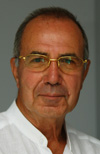
Born in Istanbul in 1931, he is a graduate of Ankara political sciences and the naval academy. As a first class naval officer he served in Maryland USA, England and 2 years in Malta. Upon retiring from the navy in 1972 he worked as freelance writer both penning novels and research articles on diverse subjects. He worked as the Turkey representative of many foreign periodicals such as ‘Lloyd’s of London Press’, ‘Informa’, ‘Seatrade’, ‘Shipbroker’, ‘Naftiliaki’ (Greece), ‘Internationale Journal des Transports’ (Swiss). His latest published books include ‘Moda’li Vitol Ailesi’ [The Whittall family of Moda] and dealing with the shipping brokers of the Ottoman period who were mostly Levantines: ‘Vapur Donatanlari ve Acenteleri Tarihi’ [The history of Shipping Agencies] - submission page:
Mehmet Yüce
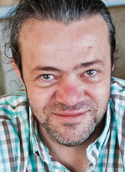
Mehmet Yüce was born in Carsamba, Samsun district in 1965. He graduated from the Istanbul Technical Universty faculty of mechanical engineering in 1987. Since 2000 he has been conducting research on the social and sports history of the late Ottoman and early republic periods of Turkey. In his research he has unearthed some unknown informations concerning Levantine sports history and has shared this information on our website. His books include: Osmanlı melekleri [Ottoman angels], İdmancı ruhlar [Sporting spirits], Romantik yürekler [romantic hearts], Ale'l-ıtlak baldırıçıplak [naked thighs], Darüüşafaka spor tarihi [Darüüşafaka sports history], Esir şehirde spor [Sports in occupied Istanbul], Türkiye basketbol tarihi [Turkish basketball history] – profile page: - submission page:
Buğra Poyraz
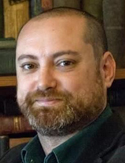
Buğra Poyraz was born in 1983 in Izmir. After studying Philosophy and Theology in Italy, he got his BA in Economics in Turkey. He got his Master’s degree in history at Istanbul Bilgi University with the thesis entitled “The Religious Protectorate of France on the Ottoman Catholics and the Start of the Diplomatic Relations between the Holy See and Turkey”. He is currently pursuing his phd at the Paris 8 University, Institut Français de Géopolitique. He also published the book entitled “The History of the Church Diplomacy in Turkey” in 2016 through Libra Editions.
Poyraz has translated books for various publishing houses, as well as libretti of opera for the State Opera and Ballet.
